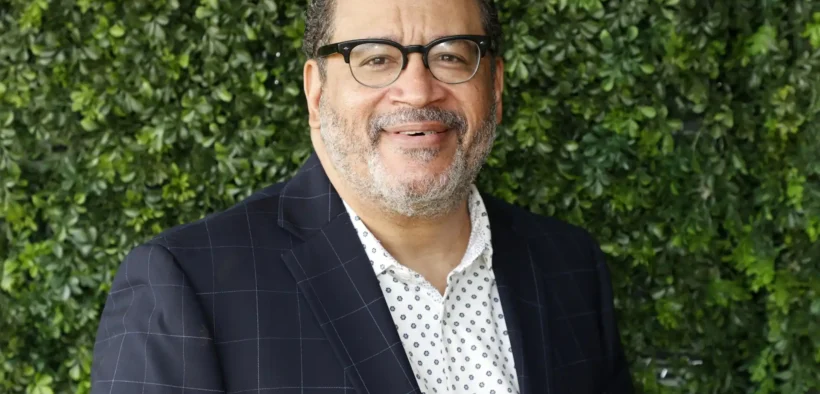How Michael Eric Dyson Turned Struggles into a Fight for Racial Justice
Share

Michael Eric Dyson’s journey to becoming one of America’s most influential intellectuals was not without its struggles. Behind the accolades and the media appearances lies a story of personal and professional challenges that shaped his voice, his scholarship, and his advocacy for racial justice.
A Childhood Shaped by Hardship
Born in 1958 in Detroit, Michigan, Dyson grew up in a city that was, at the time, in the throes of economic decline and racial tension. Raised by his mother, Addie Mae Leonard, in a single-parent household, Dyson’s early years were defined by the struggles of living in a neighborhood beset by poverty and social inequality.
Detroit’s systemic challenges, from the collapsing industrial economy to racial segregation, marked Dyson’s formative experiences.
But it wasn’t just the external environment that shaped Dyson’s struggle, it was also the internal battles he faced. As a young man, Dyson was burdened by the pressure of navigating his academic ambitions while dealing with the realities of systemic racism.
It was in this challenging environment that Dyson developed his commitment to understanding the forces that shape racial and social inequality.
The Struggle of Balancing Faith and Scholarship
Dyson’s journey into academia was also shaped by his faith. At just 19, he was ordained as a Baptist minister, a step that placed him at the intersection of religion, social justice, and education. But balancing his religious convictions with his academic pursuits wasn’t always easy.
Dyson’s path to higher education was fraught with tension as he sought to reconcile his personal beliefs with the intellectual challenges of studying in predominantly white academic spaces.
At Princeton University, where Dyson earned his Ph.D. in religion, he found himself grappling with the challenges of being one of the few African Americans in a field that often sidelined his experiences and perspectives.
The very academic institutions that were meant to propel him forward were, at times, isolating. Dyson often faced the challenge of carving out a space for Black thought in a predominantly white intellectual world, a struggle that influenced much of his later work.
The Struggles of Speaking Truth to Power

As Dyson’s career took off, so did the scrutiny. His bold critique of American institutions, particularly in his books and public speeches, invited both praise and controversy. He’s never shied away from calling out the hypocrisy in American society, particularly when it comes to issues of race and racial inequality.
His book Tears We Cannot Stop: A Sermon to White America (2017), for instance, delivered a sharp, impassioned critique of white America’s failure to acknowledge its role in perpetuating racial injustice. The book, while widely celebrated, also faced backlash, particularly from those who believed Dyson’s message was too critical or harsh.
Dyson’s willingness to confront uncomfortable truths about American society has made him a target of both ideological opponents and even allies who feel his voice is too abrasive.
But for Dyson, the struggle to speak truth to power has always been central to his mission. It is this very willingness to challenge the status quo—whether in politics, media, or academia, that has earned him the title of “controversial scholar.”
Personal Struggles: Family and Loss
Beyond his professional struggles, Dyson has faced personal challenges that have tested his resilience. His relationship with his family, particularly as a father, has been one of constant reflection.
Dyson has often spoken about the difficulties of balancing a demanding academic career with the responsibilities of fatherhood. The complexities of being both an intellectual and a present parent have shaped his views on social justice, pushing him to center family and community as critical components of racial and social progress.
On a deeper, more personal level, Dyson has also faced loss. The deaths of loved ones, including his father and close friends, have profoundly affected his work. These losses have, at times, left Dyson questioning the nature of life, faith, and the pursuit of justice.
Yet, these personal struggles have also given his work a unique depth and urgency, as he uses his own pain to fuel his call for collective healing and transformation.
The Struggle for Racial Justice
Throughout his career, Dyson has been an unyielding advocate for racial justice. He has written extensively about the history of Black America, and his scholarship has centered on the lives of African American leaders such as Malcolm X and Martin Luther King Jr. But Dyson’s advocacy goes beyond intellectual discourse; it is deeply personal.
He has never separated his scholarship from his activism. He has, time and again, confronted the very systems of power that maintain racial inequality, speaking out against police brutality, mass incarceration, and economic injustice.
But the struggle for racial justice, Dyson reminds us, is far from over. His calls for systemic change are not simply theoretical—they are a reflection of his lived experience and his desire to see real transformation in America.
The fight for equality is ongoing, and Dyson has always been at the forefront of it, urging society to confront its own biases and embrace a more inclusive future.


















